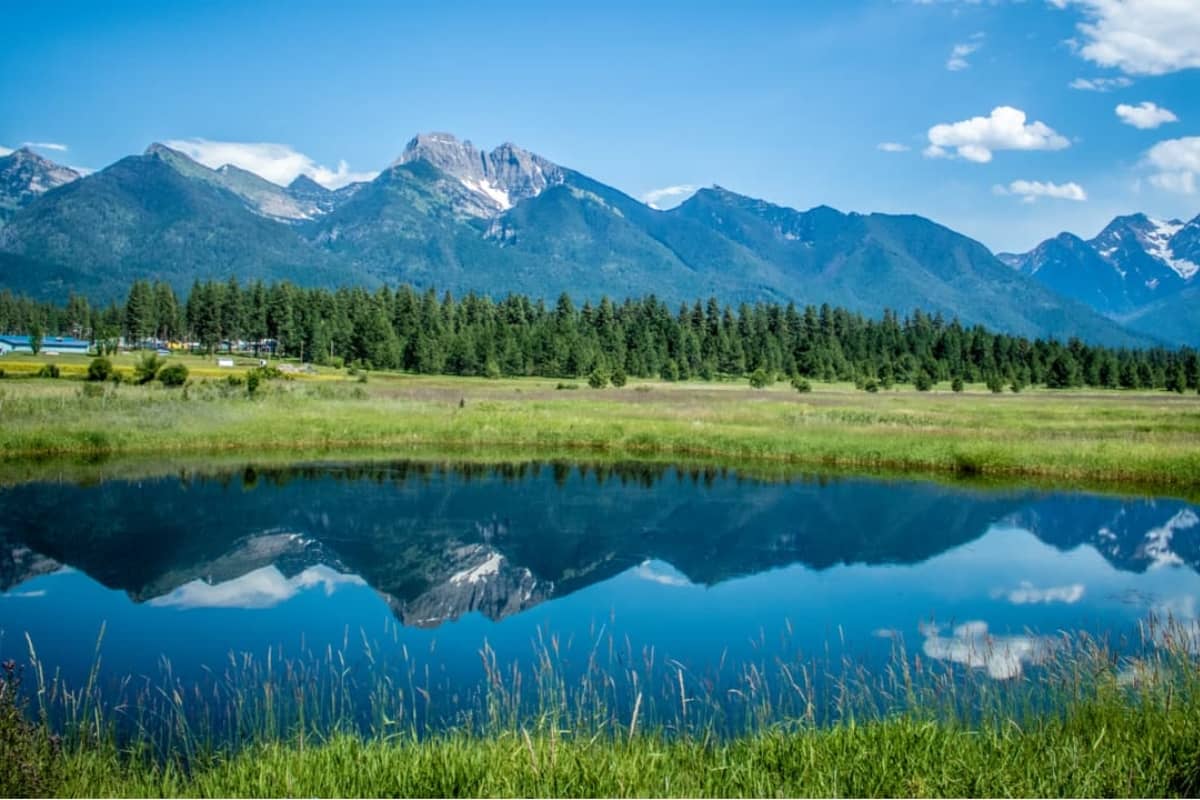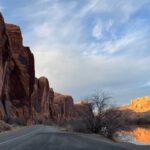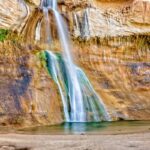Scams targeting tourists in the Flathead Range, Montana, have become a growing concern in recent years. Whether it’s through fake rental listings, overcharging tourists, or deceiving visitors with false experiences, these scams are designed to take advantage of the unprepared. With the rise in outdoor tourism, especially in destinations like the Flathead Range, scammers are finding new ways to exploit unsuspecting visitors. This article will dive into seven prevalent scams in the region and offer tips to avoid them.
1. Fraudulent Rental Listings
One of the most common scams in the Flathead Valley involves fake rental properties. Scammers post listings on popular platforms such as Craigslist, Airbnb, and other vacation rental sites, advertising attractive vacation homes at reasonable prices. Once a tourist expresses interest, the scammer requests a deposit via electronic transfer services like PayPal or Venmo. After the payment is made, the scammer vanishes, leaving the traveler without a place to stay.
Kalispell Police have warned about this trend, especially during peak tourist season when housing availability is limited. The advice from local authorities is to verify the listing through a trusted property management company or agency. It’s also important to avoid any transactions that require electronic payment upfront without an in-person meeting or verifiable contract.
2. Phony Guided Tours
Tourists seeking guided tours of the picturesque Flathead Range have also been targeted by scammers who offer enticing “local” adventures at discounted prices. In some cases, these operators either don’t exist or provide tours that fall drastically short of expectations. They may lead tourists on generic hikes or excursions while claiming to provide access to unique locations or rare wildlife sightings.
To avoid this scam, tourists should stick to well-known tour operators with verified reviews and certifications. Checking platforms like TripAdvisor or consulting with local tourism boards can help verify the authenticity of any tour company. Ensuring proper licensing and insurance for adventure tours is another important step.
3. Overpriced Local Goods
Another scam that tourists may encounter is the deliberate overpricing of local goods, particularly in popular tourist areas. Whether it’s handcrafted items, souvenirs, or locally sourced products, some vendors take advantage of tourists’ unfamiliarity with standard prices. This issue is more prevalent in small towns around Flathead Lake and Glacier National Park.
One way to combat this scam is by familiarizing yourself with average prices before visiting. Asking local residents for recommendations on where to shop can also be a good way to find reputable vendors who offer fair pricing. Additionally, avoiding shops that seem to cater exclusively to tourists might help steer clear of these inflated price tags.
4. Fake Parking Fees
Fake parking attendants have been reported in areas surrounding Flathead Lake and popular trailheads in the Flathead Range. These scammers pose as legitimate parking attendants and charge fees for spaces that are, in reality, free. Unsuspecting tourists may pay these fees, thinking they are required, only to later find out they were scammed.
Visitors should always look for official signage indicating whether parking fees are required. In many cases, public parking at trailheads or recreation areas is free, or the fees are clearly marked. When in doubt, checking with park rangers or local authorities can help confirm if parking fees are legitimate.
5. Phishing and Fake Booking Websites
As more tourists rely on the internet to plan their trips, phishing scams have become a significant issue. Scammers create fake websites or send phishing emails posing as legitimate companies, such as hotels or tour operators. These emails often include links that direct users to a fake booking page designed to steal personal and payment information.
To avoid falling victim to these scams, tourists should be cautious of unsolicited emails and double-check the website URL before making any transactions.
6. Wildlife Experience Scams
The allure of Montana’s wildlife draws many tourists eager to see grizzly bears, wolves, elk, and other animals in their natural habitat. Unfortunately, some fraudulent tour operators exploit this enthusiasm by promising guaranteed wildlife sightings in areas where animals are scarce or non-existent. These tours often charge premium prices, leaving tourists disappointed when no wildlife is spotted.
To avoid being scammed, always research wildlife tour companies beforehand. Reputable companies will have a track record of satisfied customers and should be transparent about the likelihood of wildlife sightings. It’s important to remember that no legitimate operator can guarantee encounters with wild animals, as sightings depend on numerous factors outside human control.
7. Bogus Adventure Gear Rentals
Adventure tourism is a major draw for visitors to the Flathead Range, with activities such as kayaking, mountain biking, and hiking in high demand. Scammers have taken advantage of this by setting up fake rental businesses for outdoor equipment. Tourists pay for gear rentals online or over the phone, only to arrive and find no rental shop or available equipment. In some cases, the gear provided is damaged or unsafe.
The safest way to avoid this scam is to rent equipment from established, well-reviewed shops. Checking for reviews on Google, Yelp, or other travel sites can help ensure that you’re dealing with a legitimate business. It’s also advisable to call the rental shop directly and confirm the details of the rental, such as availability and condition of the gear, before making any payment.
Tips to Avoid Tourist Scams in the Flathead Range:
- Verify Rentals: Always use reputable websites or agencies when booking vacation rentals. Be wary of listings that ask for immediate deposits through online payment services without verifiable contracts.
- Research Tour Companies: Check reviews on platforms like TripAdvisor and verify a tour company’s legitimacy before booking. Ensure that the company is licensed and insured for any adventure activities.
- Know the Market Prices: Familiarize yourself with the local prices for goods and services, and ask locals for shopping recommendations to avoid overpriced products.
- Look for Official Signage: Avoid paying parking fees to unofficial attendants, and always check for park signs or verify with local rangers if parking fees are required.
- Book Through Secure Platforms: Only book through websites with secure URLs (“https”) and avoid giving out personal or payment information through email. Stick to reputable travel platforms for reservations.
- No Guaranteed Wildlife Sightings: Be wary of any wildlife tours that promise guaranteed sightings, as this is often a red flag for a scam.
- Rent Gear from Trusted Shops: Research rental shops online, confirm gear availability, and check customer reviews to ensure you’re renting from a legitimate provider.
By being aware of these common scams, tourists can better protect themselves while enjoying the stunning beauty and adventure that the Flathead Range has to offer.






